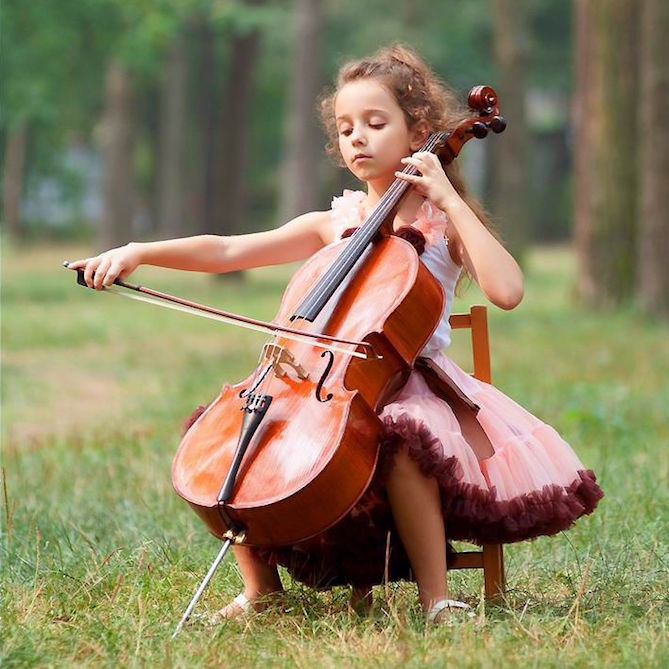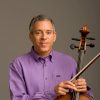
Enjoy Your Cello Playing, Always
Mark Summer
I was practicing prelude from Bach’s G Major cello suite the other day when a thought suddenly occurred to me. I was having fun practicing! It certainly wasn’t the first time I had that experience, however, the feeling was as fresh as the air after a rainstorm. Often, when things get hard in a practicing session I sort of slam myself with a cascade of negative thoughts:
“Mark, you should play this better than this! How many years have you been working on this piece? Can’t you play more in tune? It sounds like &^@#!” and on and on and on.
But this time, the self-talk was different. I noticed that I was enjoying focusing so intensely on music I had sometimes mindlessly breezed through many times before. I began to really appreciate Bach’s genius and compositional prowess. I noticed where the phrases were going harmonically and appreciated how delightful it is to play a fretless instrument that allows us to be thoughtful about our intonation, raising the leading tones, finding the purity in fifths, always honing in on the pitch. Instead of comparing my playing to some imagined virtuoso existing in my head, I opened up to the joy of simply playing what is one of the most glorious pieces of music ever written for the cello. In other words, I found myself thoroughly enjoying my own playing. It felt radical!
I wish that this idea of self-appreciation had been introduced when I was studying at conservatory. I felt such despair at the possibility of coming up to a level of competence that was even in the same universe as my teacher, that sometimes even a modicum of enjoyment was beyond my reach. But now, as I think back on my musical education, it seems obvious to me how important it is to find a way to enjoy our cello playing. How else will we have the discipline to practice with the kind of diligence that will bring us the results we are looking for? We all know that being a brutal taskmaster to someone else is a sure way to lose a friend. When we do it to ourselves, we risk even more. We risk losing our confidence, and our inner joy, which once lost are exceedingly difficult to regain.
I have a long time cello friend who absolutely adores playing the cello. She has often mentioned how lost she would be without it. I’ve often envied her dedication and enthusiasm. She has had to grapple with physical issues: frozen shoulder, chronic pain, and tendonitis. I’ve marveling at her tenacity; her devotion to all things cello is an inspiration to me. She’s helped me to understand that our work as students of this sublime yet difficult instrument is never done. When I glance at the music placed on the stand in her studio, I see little arrows pointing up and down besides many notes on the score, reminders to help facilitate her playing in tune. It’s true that with intonation, our work is never done. Yet, rather than be a source of misery, this hard truth can lead to a joyful realization that we are human beings, not human doings, always on the path of liberation from self aggression. We can celebrate our journey of artistic discovery. We can endeavor to enjoy our cello playing, always.
Subjects: Practicing
Tags: cellobello, CelloBlog, practicing
